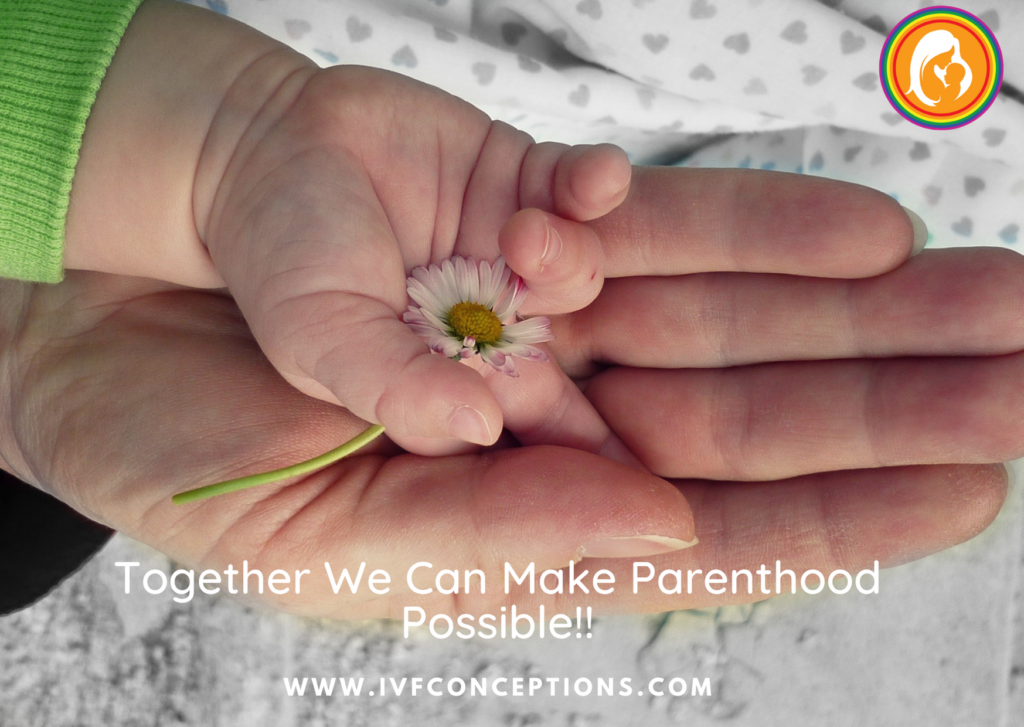Let us explore the process of surrogacy – Types, Needs, Steps, Challenges, and Legislation

The gestational surrogacy process is when a lady carries and gives birth to a baby for another person or couple. It’s usually done through IVF (in vitro fertilization) with or without an egg donor. The gestation carrier or surrogate mother who carries the pregnancy has no genetic relation to the baby.
This comprehensive guide delves into the intricacies of gestational surrogacy, shedding light on the process, potential risks, and invaluable benefits.
Contact us directly for a free consultation!🤝
📲 +91-8800481100 ( WhatsApp, Line, Viber)
Understanding Gestational Surrogacy
Gestational surrogacy is a compassionate arrangement where a woman, known as the gestational surrogate or carrier, carries and delivers a child on behalf of another individual or couple, referred to as the intended parents.
The distinguishing factor of gestational surrogacy lies in the absence of a genetic connection between the carrier and the baby. This practice predominantly involves the utilization of in vitro fertilization (IVF) techniques to create embryos that are then transferred into the surrogate’s uterus.
 The Dynamics of Gestational Surrogacy
The Dynamics of Gestational Surrogacy
Surrogacy Process Overview
The journey of gestational surrogacy starts with a meticulous selection process of the gestational carrier, followed by the establishment of legal contracts between the carrier and the intended parents. Medical and psychological screenings are imperative to ensure the well-being of all parties involved. Once these aspects are finalized, the IVF treatment is initiated.
Selecting the Ideal Carrier
The selection of a gestational carrier is a critical step in the surrogacy journey. Agencies often serve as intermediaries, aiding in the matching process between intended parents and carriers. Criteria such as age, health, pregnancy history, and emotional support network are essential factors considered during this selection.
Medical and Psychological Screenings
Both the intended parents and the carrier undergo thorough medical evaluations, including screenings for psychological well-being. The American Society for Reproductive Medicine emphasizes comprehensive medical exams for carriers to ensure their suitability for pregnancy.
Legal Aspects
Prior to commencing IVF, comprehensive legal contracts are drafted, covering various aspects such as custody arrangements, responsibilities during pregnancy, compensation, and potential scenarios with legal implications. Legal complexities vary across states, necessitating expert legal guidance.
The IVF Treatment
IVF serves as the cornerstone of gestational surrogacy, involving the creation of embryos through the fusion of eggs and sperm from the intended parents or donors. These embryos are then transferred into the uterus of the gestational carrier, kickstarting the remarkable journey of pregnancy.
 Different types of surrogacy
Different types of surrogacy
- Traditional Surrogacy In traditional surrogacy, women use their own eggs and the intended fathers or donor sperm inseminate them artificially. The surrogate mother is carrying the baby, delivering the baby, and then giving the parents the baby to raise. The traditional surrogate mother is the biological mother of the baby because the sperm of the intended father has fertilized her egg.
- Gestational SurrogacyShe is a woman carrying a baby born with the intended mother’s egg, or an egg donor, and the intended father’s sperm or sperm donor. A gestational surrogate mother has no genetic connection to the baby because the egg used during the IVF process was not of the gestational surrogate.
Apart from the traditional surrogacy and gestational surrogacy, there are other types of surrogacy as well –
- Commercial surrogacy – In commercial surrogacy, there is compensation or financial gain for the gestational carrier. The surrogate compensation varies from country to country.
- Altruistic (non-commercial) surrogacy – Altruistic surrogacy happens when there is no fee for the birth mother. In the UK, Canada, and Australia, only this form of surrogacy is allowed.
Who may require a surrogacy procedure?
- Same-sex couples – Gay couples, particularly men, will use surrogacy by donating their sperm to have a child of their own. They take the help of donated eggs to have their own infant. This trend is becoming increasingly common these days. It is important to work closely with the LGBT community in order to equip them with the available options. The best way to learn more about surrogacy is through activities such as the Men Having Babies Conference.
- Mother’s Advanced Age – There are many cases where women of advanced age took the child to conception performed the IVF treatment and used an egg donor to bear a healthy pregnancy. But this choice can’t be made by everyone.
- The Single Parents – The biological clock is not always ticked by a woman. Sometimes a man is willing to become a dad and does not want a relationship with a woman to make it happen. Therefore, surrogacy is an important option for those who want to develop their family on their own terms.
- Infertility issues in couples – The patient must also go through 4 or 5 rounds of IVF and then can’t carry a child. In these cases where pregnant women have a recurrent failure, it is possible to choose gestational surrogacy.

How does the process of surrogacy work?
Preparation of surrogacy – Once the intended parents and the surrogate have decided to commit to the surrogacy process, they must then assess the surrogacy procedure’s requirements and goals. Next, determine which form of surrogacy to choose from.
Read more: How long does the surrogacy process take?
It will be appropriate for intended parents and surrogates to weigh several other variables and determine which surrogacy is right for them.
The intended parents:
You’ll start to create your surrogacy strategy at this stage and start to envision your surrogacy journey. While keeping your expectations and desires in mind, you need to build your surrogacy strategy.
You will also have to figure out the following-
a) Form of surrogacy that you want to try.
b) If you need an egg donor or a sperm donor
c) Whether you’re going to work with the surrogacy agency
d) Whether you know the surrogate or not. Once you’ve established the type of surrogacy you might want, you’re going to start working with the surrogacy agency now.
For the surrogate:
Once, the surrogate wants to become a surrogate. She needs to consider several other considerations such as –
a) Does she know the intended parents with whom she would like to work?
b) What kind of surrogacy does she care about?
c) Do you want to work with an agency all over the place?
Finding a match –
Surrogate selection is one of the most important steps in any surrogacy process. There are some desires and expectations to be met by the planned parents from the surrogate.
So, here’s the process of how the match works the surrogacy agencies find a surrogate mother, and intended parents who have similar surrogacy expectations are put in touch to see if they would like to choose each other.
If both parties are interested in moving forward, they can better understand each other through telephone calls, emails, or in-person conferences and formalize the game by drawing up the first legal contract.
Signing legal agreement –
Once the planned parents and the surrogate have decided to move together, they will both have to sign the surrogacy legal agreement. Both the planned parents and the surrogate will each have a different surrogacy attorney to ensure their interests are protected. Each party is required to meet separately with the correct lawyer. Once everyone has met the contract’s common terms, the contract will be signed.
Embryo transfer and fertilization –
Once the documents have been signed, the medical procedures are now switched. Medication will be given to the planned mother or egg donor to help her produce the eggs and then go for egg pickup. After that, eggs are then fertilized to create an embryo. Then these embryos are implanted in the gestational carrier, in the hope of pregnancy.
 What are the Surrogacy risks?
What are the Surrogacy risks?
Medical risks –
Surrogate pregnancies, like any other pregnancy, entail the same medical risks of carrying and giving birth to a child.
These may include morning sickness nausea, swelling, back pain, weight gain, heartburn, and other unpleasant side effects. Some more serious side effects, such as gestational diabetes, hypertension or potential damage to your reproductive organs, could occur during pregnancy.
Like any pregnancy, the risk of a miscarriage of surrogacy or preterm labor is also present. To minimize these risks, it is important to keep in close contact with your antenatal care doctor, take the right medication, get the right amount of rest, and correctly follow their recommendations.
Emotional risks –
In addition to surrogacy’s medical risks, prospective surrogates often face emotional challenges. While pregnancy can be a difficult process in itself, some women find surrogacy more emotionally daunting because they won’t end up going home with the infant, they’ve been dealing with for nine months.
You may be at risk of depression during and after the surrogacy phase, as with any pregnancy. While you are going to be delighted and profoundly pleased with the expected parents, after the baby’s birth, you may also experience some tough feelings of grief and loss.
Legal risks –
Gestational surrogacy is complicated as it involves legal procedures and abidance to some laws like the surrogacy laws of the land. Also, these legal processes might be overwhelming sometimes. It is important to work with some renowned doctors to ensure the safety of the child and the surrogate.
International surrogacy process and surrogacy legalities:
Best countries for international surrogacy
Cheapest country for surrogacy that parents should know
Best country for gay surrogacy
Conclusion
In conclusion, gestational surrogacy is a life-changing process for childless couples and single male or gay couples. However, before opting for a surrogacy process within your country or abroad, contact a surrogacy professional who can assist and guide you to the best surrogacy country and surrogacy plan for you.
If you’d like to learn more about IVF, Egg Donation, or surrogacy services globally, check out the rest of our website at IVF Conceptions.
Contact us directly for a free consultation!🤝
📲 +91-8800481100 ( WhatsApp, Line, Viber)

FAQs About Gestational Surrogacy Process
What is surrogacy and how does it work?
Surrogacy involves one person carrying and delivering a baby for another person or couple. In gestational surrogacy, an embryo is created through IVF using the intended parents’ eggs and sperm, then transferred to the surrogate’s uterus.
Who can opt for surrogacy?
Couples or individuals facing fertility issues, medical conditions preventing pregnancy, or same-sex couples seeking parenthood can opt for surrogacy.
What are the different types of surrogacy?
There are two types: gestational and traditional. Gestational surrogacy involves using donor eggs and carrying them through IVF. Traditional surrogacy involves using the surrogate’s egg.
What is the legal process of surrogacy?
Legal contracts are signed before IVF, specifying roles, responsibilities, and custody arrangements. Laws vary by state, requiring experienced legal assistance to navigate.
What are the medical and emotional considerations in surrogacy?
Surrogates undergo medical and psychological screenings. Emotional support is crucial due to the complexities and potential attachment involved.
How do intended parents choose a surrogate mother?
Intended parents can choose through surrogacy agencies, considering health, age, and medical history. Some opt for known individuals like family members.
What are the potential risks and challenges in surrogacy?
Risks include unsuccessful pregnancies, medical procedures, financial costs, and emotional challenges for both intended parents and surrogates.
What is the role of fertility clinics in the surrogacy process?
Fertility clinics facilitate IVF, creating embryos and overseeing medical procedures. They ensure the successful transfer of the embryo to the surrogate.
How does the financial aspect of surrogacy work?
The cost varies based on legal fees, medical expenses, agency costs, and location. Intended parents should be prepared for expenses ranging from $50,000 to $150,000.
What is the difference between traditional and gestational surrogacy?
Gestational surrogacy involves using donor eggs and has no genetic connection to the surrogate. Traditional surrogacy uses the surrogate’s egg and carries more legal complexities.

 The Dynamics of Gestational Surrogacy
The Dynamics of Gestational Surrogacy Different types of surrogacy
Different types of surrogacy What are the Surrogacy risks?
What are the Surrogacy risks?